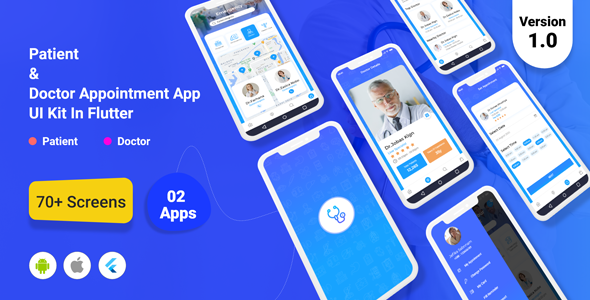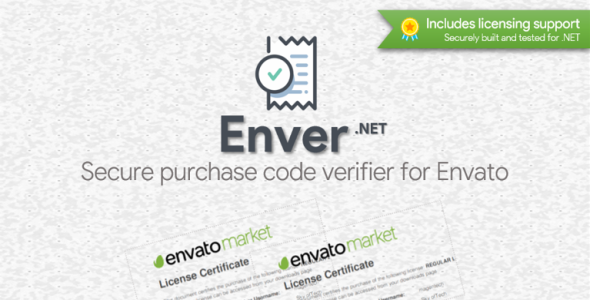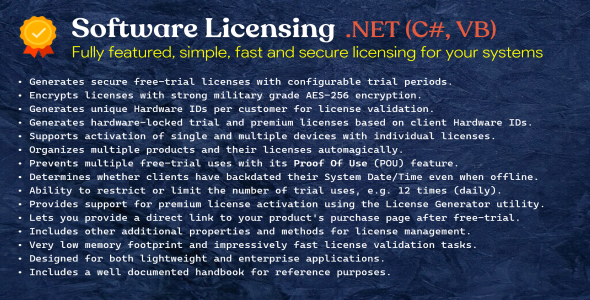Keevault - License Manager and Telemetry Data Collection
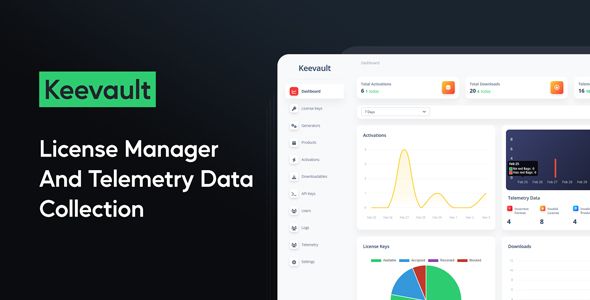
Description
Keevault – The all-in-one solution for software license verification and usage and telemetry data collection.
Demo/Live Preview
Username: demo@keevault.com
Password: demouser
API: Postman Collection (You have the option to directly test the API responses using Postman.)
The demo resets every 60 minutes.


Please note: We offer free installation services only for hosting with cPanel or similar control panels. If you’re using a VPS, you need to install cPanel or a similar web control panel. We don’t provide installation service on localhost.
If you need free installation service, please create a ticket on our support platform and give us access to your hosting (hosting URL, username, and password), and our dev team will install it for you.
License Keys
Create or import license keys using the dashboard or through the API. Additionally, license keys can be bulk-generated using the generator feature.
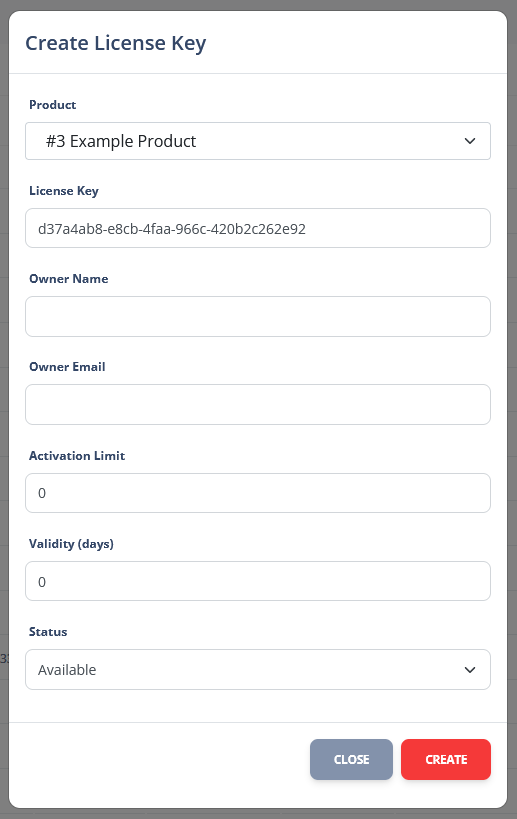
Generators
A versatile and powerful license key generation system allows you to generate keys in either UUID or chunk-system format. For instance, generating keys with four chunks, each consisting of four characters, will result in keys such as B4AD-EF5C-548D-90EF. Additionally, you have the option to call your own PHP generator function with minimal code required.

Products
Products can be categorized as internal or external (for Envato support). Create your product and configure it according to your preferences, which will later be utilized by the API.
With a strong emphasis on security, each product can possess its own private key for signing API responses, in addition to the global private key utilized for signing non-product-related API responses.
The purpose of the signature is to verify that the response received by your software originates from your own servers and not from a third party. Furthermore, a timestamp is included in all API responses to ensure the uniqueness of each signature, even if the data remains unchanged.
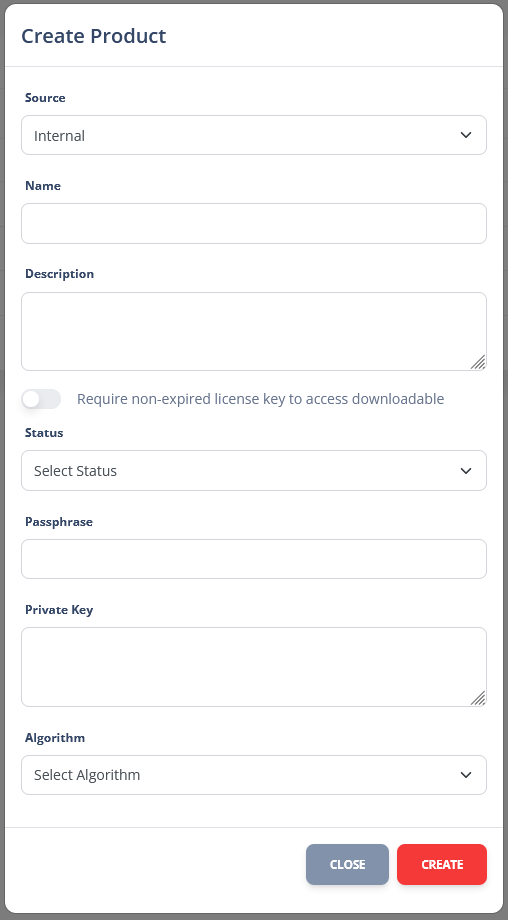
Downloadables/Product Updates/Versions
Create downloadable packages accessible through the API. When the access downloads endpoint is called, it will return a list of download links that can be accessed if the set requirements are met.
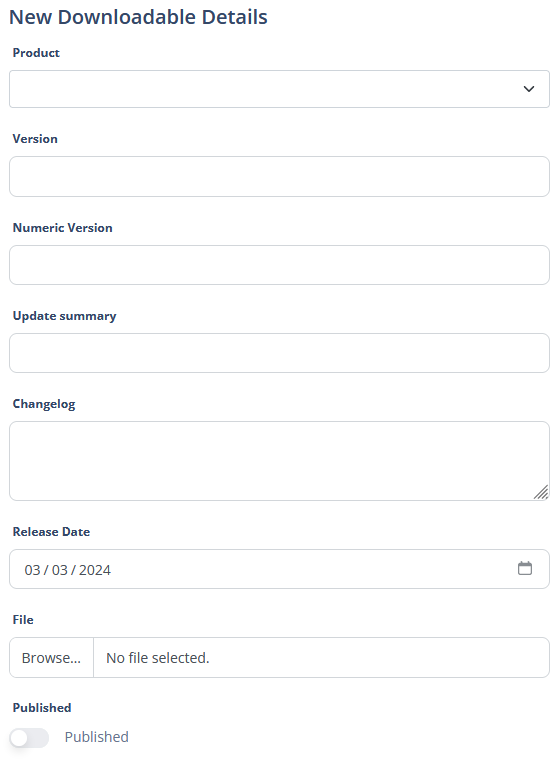
Examples of configurable requirements include:
- Requiring the license key to be assigned within a specified date range. This is useful if you want to grant your customers access to downloads created within one year of their purchase, for example.
- Managing license keys that expire before a certain date, which is useful for perpetual access or fallback licenses.
- Set a fixed cutoff date after which the package can no longer be accessed.
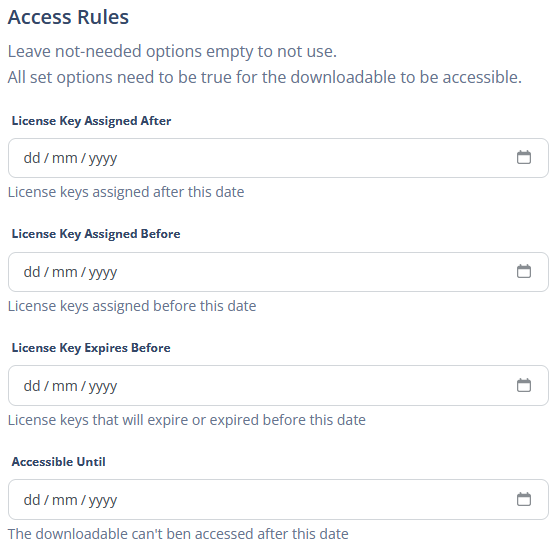
Activations
Assign a unique identifier to each activation, which could be a Device ID or a domain for web applications/plugins.
For domains/websites, an additional Post URL can be configured to send remote deactivation requests to the server where the product is deployed.
These remote deactivation requests are signed using the product’s private key to ensure that your software can verify the request’s origin and authenticate that it originates from your servers.
API Keys
You have the option to bind an API key to a specific IP address or allow access from anywhere. Each API endpoint requires its own permission to be enabled to be accessible.
API Settings
API access can be restricted by blocking IPs and identifiers (such as device IDs and domains). Additionally, download links can be restricted to a specific user agent, in addition to the existing global API restrictions.
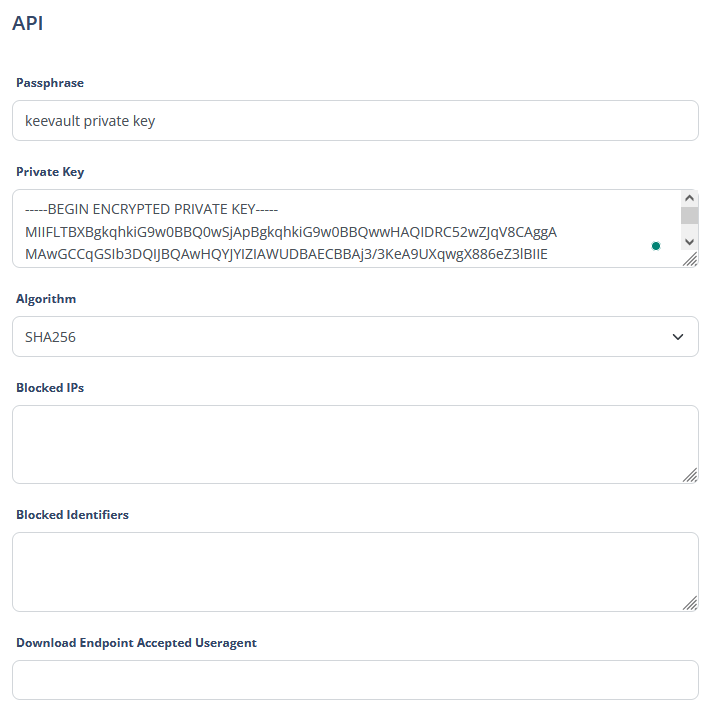
API Endpoints
With 25 endpoints available for both product and internal use, you can license your products and seamlessly integrate the license manager with third-party tools.
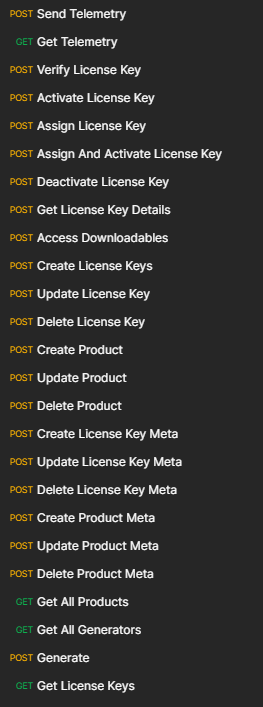
Logs
All actions on the dashboard or through the API are logged, with administrators having the ability to purge logs.
Logs are categorized, and each category can be individually enabled or disabled.
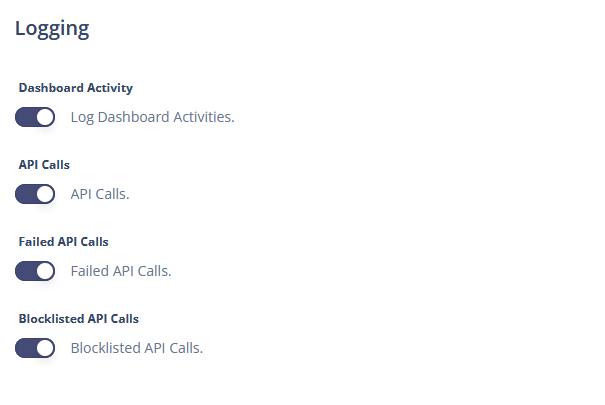
Telemetry Data
All telemetry data can be viewed from the dashboard and accessed via the API for use and processing by third-party tools.
Dashboard Widgets
Telemetry data collected via the API can be utilized to create dashboard widgets, providing an overview of the latest collected data.
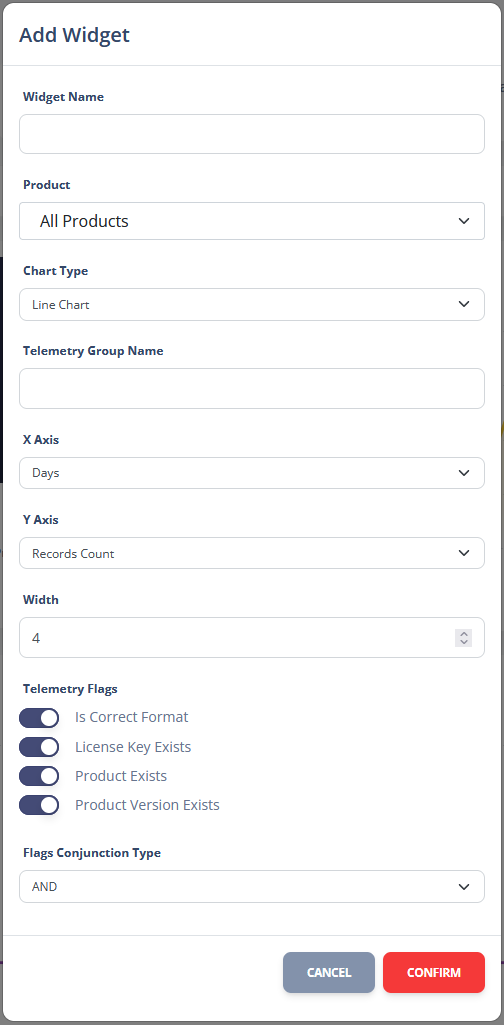
Widgets can be rearranged, resized, removed, or hidden for built-in options.
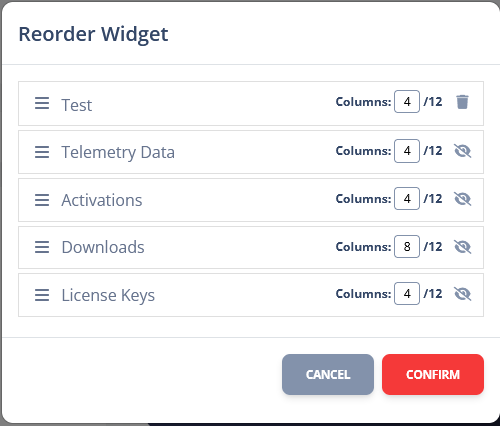
Filter and bulk actions
All data tables support filtering capabilities. For instance, license keys can be filtered by the key itself or a partial fragment, as well as by owner name and email, product, or status. This streamlined process enables you to swiftly locate the desired data.

Bulk actions allow you to perform actions such as deleting or changing the status of multiple records simultaneously.

User Security
Enabling two-factor authentication (2FA) enhances account security by requiring not only a password and username but also a time-sensitive code for login.
Included In The Package
- Keevault – Laravel Web Application
- API Documentation
- Product Documentation
- API Postman Collection
Requirements
- PHP 8.1+
- MySQL 5.7+
Suggestions
If you have any suggestions for new features, please don’t hesitate to share them in the comments section. Your input is greatly valued!
Upcoming Features on the Roadmap
Contracts: Introducing specialized API endpoints that grant contract owners, such as organizations or companies, the capability to generate a predefined number of license keys according to specified generator rules. Depending on the permissions configured by the admin, contract owners can create or destroy licenses using their designated contract key.
– The update will be released soon, expect this feature in version 1.1.0
Physical Security Keys Support for Two-Factor Authentication: While Keevault already offers two-factor authentication using OTP, we’re enhancing security by introducing support for physical keys like YubiKeys.
– Expect this feature in version 1.1.1
Version 1.0.3 - March 22, 2024 - Fixed a bug in the 'get-license-keys' endpoint. - Fixed a bug where admins can delete the currently logged-in account. Version 1.0.2 - March 18, 2024 - Fixed error during API key creation. Version 1.0.1 - March 14, 2024 - Added 'get-available-license-keys-count' endpoint. - Fixed the 'get-license-keys' endpoint defaulting to the minimum per page if the quantity is less than 10, now you can get as low as 1 license key per request. - Fixed sidebar toggle not showing on mobile.
- 14Sales
- 6 month free support included from author
- Free lifetime product updates guarantee
- 360 degrees quality control
